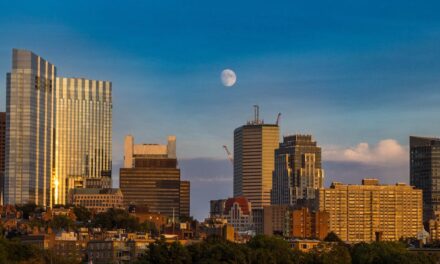My relationship with Stockton, California, began with family visits to an aunt and uncle and, later, trips for corporate events at the Stockton Ports’ banner stadium.
Outside of these visits, my knowledge of Stockton was like an unopened book.
Curiosity led me to research, and I found a city with a story as rich and varied as any other in California. Let’s explore Stockton’s history, which is as intriguing as it is complex.
Table of Contents
The Native Foundations: Before Stockton
Before it was known as Stockton, the area was home to the Yokuts and Miwok people. Their presence is the bedrock of Stockton’s history, setting the stage for its diverse cultural background.
Captain Weber’s Vision: The Birth of a City
In 1849, German immigrant Captain Charles Maria Weber purchased land here after trying his hand at gold mining.
Weber saw the potential for something more lasting than the transient allure of gold and founded Stockton in 1850.
It became the initial place in California to have a non-Spanish or Native American origin name.
The Gold Rush and Stockton’s Rise
While not a mining town, Stockton became a crucial supplier for the Gold Rush due to its location on the San Joaquin River.
Its ports buzzed with activity, ushering in goods and serving as a gateway for those heading to the mines.
Agricultural Gold: The Wealth of the Valley
Following the Gold Rush, Stockton established itself as a central agricultural area.
The rich peat soil and temperate climate allowed for a diverse range of crops, essentially making the region an agrarian gold mine.
Industrial Growth and Urban Development
The 20th century saw Stockton diversify and expand.
Its port was officially opened in 1933 and became one of the largest inland seaports in the country. Industries flourished, and the city’s infrastructure grew to support its burgeoning population.
Cultural Milestones: Stockton’s Vibrant Heritage
Cultural landmarks such as the Bob Hope Theatre (originally the Fox Theatre) opened in 1930, and the Haggin Museum, established in 1931, began enriching Stockton’s social and cultural environment.
Modern Challenges and Revitalization Efforts
Stockton faced significant challenges in the 21st century, including economic hardship that led to bankruptcy in 2012. However, revitalization efforts have breathed new life into the city with downtown renovations and community initiatives.
Stockton Today: A City Reinventing Itself
Present-day Stockton is a testament to resilience and reinvention.
It’s home to a diverse population, the University of the Pacific, and various cultural and sporting events that reflect the city’s enduring community spirit.
Q&A: Uncovering Stockton’s Layers
Q: What role did Stockton play during the Gold Rush era?
A: Stockton served as a supply hub for the Gold Rush. Its proximity to the mining areas and navigable port made it an essential part of the gold-seeking movement.
Q: How has Stockton’s agricultural heritage shaped its identity?
A: Agriculture has long been the lifeblood of Stockton. Even today, the city and its surrounding areas are a significant part of the California Central Valley’s agricultural output, contributing to its identity as a breadbasket.
Q: What steps has Stockton taken to revitalize its economy after the financial challenges it faced?
A: Stockton has focused on diversifying its economy, investing in education, and revitalizing its downtown. The city has also worked on attracting new businesses and fostering a stronger sense of community.
Q: How does the city celebrate its cultural diversity?
A: Stockton celebrates its diversity through various festivals and events, such as the annual Stockton Asparagus Festival and the San Joaquin International Film Festival. The city’s dining scene also reflects its cultural mosaic.
Embracing Stockton’s Story
The history of Stockton is not just a chronicle of events; it’s a narrative of growth, adversity, and the enduring spirit of its people. It’s a city that continues to redefine itself, embracing both its rich heritage and its potential for the future.
What can other cities learn from Stockton’s story of resilience? And how can we, as a society, support cities like Stockton as they forge a new path forward?
Whether you’re a resident, a visitor, or just a curious onlooker, Stockton’s story invites reflection on the broader themes of American growth and identity.





